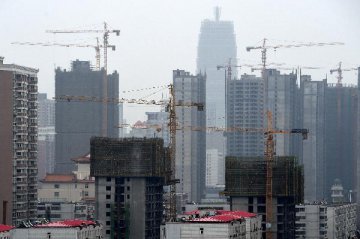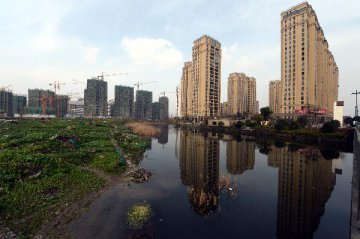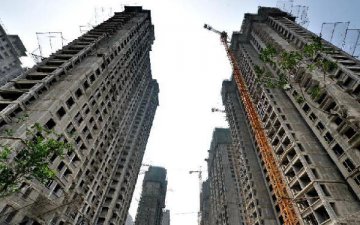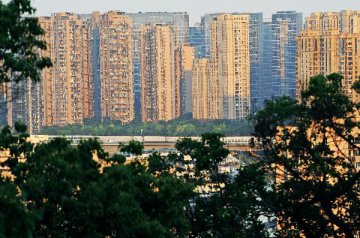
China is seeking to maintain stability in the property market this year after the roller coaster ride of 2016, with measures to prevent surges in metropolises and the growing inventories in small cities.
STABILIZING MARKET
"Despite looming problems and uncertainties, China is capable of maintaining stable and healthy development of the property market this year," Chen Zhenggao, minister of housing and urban-rural development, said on Thursday during a press conference.
His remarks came amid signs of retreating in the country's home sales and prices, which saw rapid increases in major cities in 2016. Of 70 large and medium-sized cities surveyed, 45 saw prices for new residential housing climb month on month in January, down from 46 in December and 55 in November, according to the National Bureau of Statistics.
In Beijing, new home prices remained flat month on month, while Shanghai's prices fell 0.1 percent. Shenzhen, a southern metropolis neighboring Hong Kong, slid 0.5 percent.
"The momentum of excessive home price increases has been contained, showing the primary results of regulatory policies," Chen said.
China's property market boomed last year fueled by progressive policy easing. Home buyers could easily secure mortgages and banks were generous in financing property developers. Despite cooling a bit in the fourth quarter, transactions of residential real estate in China jumped 36.1 percent to 9.9 trillion yuan (1.44 trillion U.S. dollars) last year, with home prices also surging.
Aware of the rising risks, dozens of cities have rolled out measures since October last year, ranging from purchase limits to tightened mortgage restrictions, to prevent prices from rising out of control.
The central authorities have also moved to limit credit facilitating speculative buying and land zoned for residential housing. With continued efforts to cool the market, "home prices will likely continue to calm in the first quarter," Chen said.
INVENTORY CUTS
While metropolises have already moved to limit home sales, developers in many small cities are still grappling with unsold apartments.
China will continue to push for urbanization as a major means to dissolve huge inventories of unsold homes in less developed areas, including favorable policies for rural residents to buy homes and settle in cities, Chen said.
Instead of building new apartments in former shanty towns, the government will offer subsidies to residents who buy existing homes, and the rental market will see more support from the government, according to Chen. Although still high, the country's unsold homes dropped 11 percent year on year to 403 million square meters at the end of 2016.
LONG-TERM MECHANISM
"Houses are built to be lived in, not for speculation," China's policymakers said during an economic work conference in December, proposing a mechanism to curtail asset bubbles and prevent sharp market fluctuations "It will address entrenched problems in the sector," Chen said.
The government has pledged to roll out land, investment, lawmaking, fiscal and taxation, and financial measures.
Legislation of a long-discussed law on property tax will be a significant part of the mechanism, which will fill the gap in taxing home ownership as China's current housing tax mechanism mainly taxes development and property sales.
Lu Kehua, vice minister of housing and urban-rural development, said China will move more swiftly in legislating the law.
"It is a major task in China's tax reform determined by policymakers, and the lawmaking process will be accelerated." Related government agencies and legislators are carrying out work according to the plan, Lu added.
























Latest comments